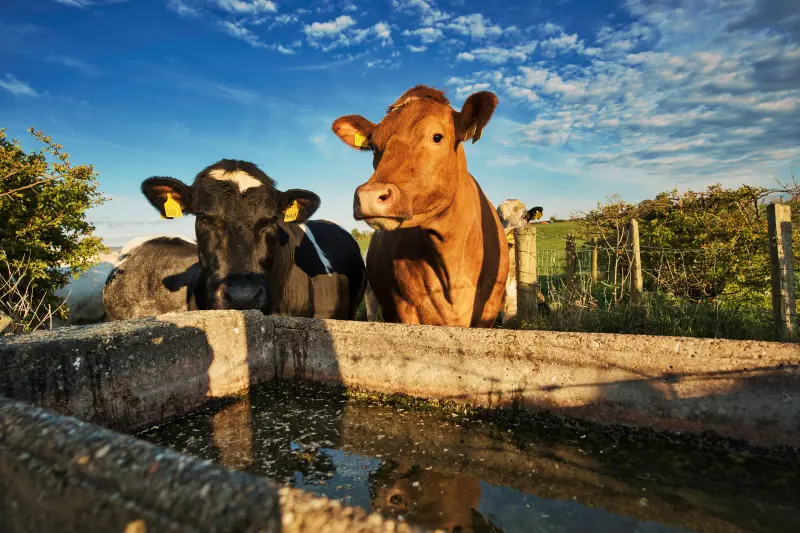
NI Water would like to remind the farming community ahead of the hot weather about how they can save water and money by checking their meters regularly. Livestock may be outside grazing and water supplies to field troughs are more important than ever in extreme heat. However, now is the time to also check your meter regularly as it can be a first indicator that a leak may have developed.
Paul Bryce, NI Water’s Head of Water says “Water is the single most important requirement for livestock. We want to make sure that farmers have all the information they need on how to save water, especially during this hot weather period. While NI Water is responsible for the public watermains landowners are responsible for the pipework within their property boundary. This includes pipes inside properties, outside taps and drinking trough supply pipes. The farming community can help NI Water keep their water flowing by checking out some of NI Water’s top farming water conservation tips. Not only will this save water, but it will also prevent unnecessary high bills.”
Here are some of NI Water’s top water conservation tips for farmers:
- Check irrigation systems are running efficiently and not leaking,
- Consider current soil moisture levels before irrigating to avoid overwatering;
- Consider alternative water resources such as rainwater harvesting or storage if feasible
- Ensure that you have good understanding of the layout of pipework within your land and keep a map of the line of this pipework;
- Have a supply of the relevant fittings to repair any leakages;
- Know where your meters are located (NI Water will help you to do this) and check them on a regular basis. A higher reading may indicate a leak which should be located and repaired as quickly as possible to reduce your water bills;
- Inspect remote troughs which may not be used in a while, particularly the exposed pipe leading into the trough; if cattle are inside consider installing a stop valve for the trough (or field) so you turn off the supply;
- Where practical ensure all underground pipes are buried 750 millimetres (2½ feet) below ground level;
- Fix dripping taps;
- Know where your stop valves are located; NI Water can provide stop valve tags. You can request these by emailing waterline@niwater.com
ENDS
Media enquiries to the NI Water Press Office via email to press.office@niwater.com

